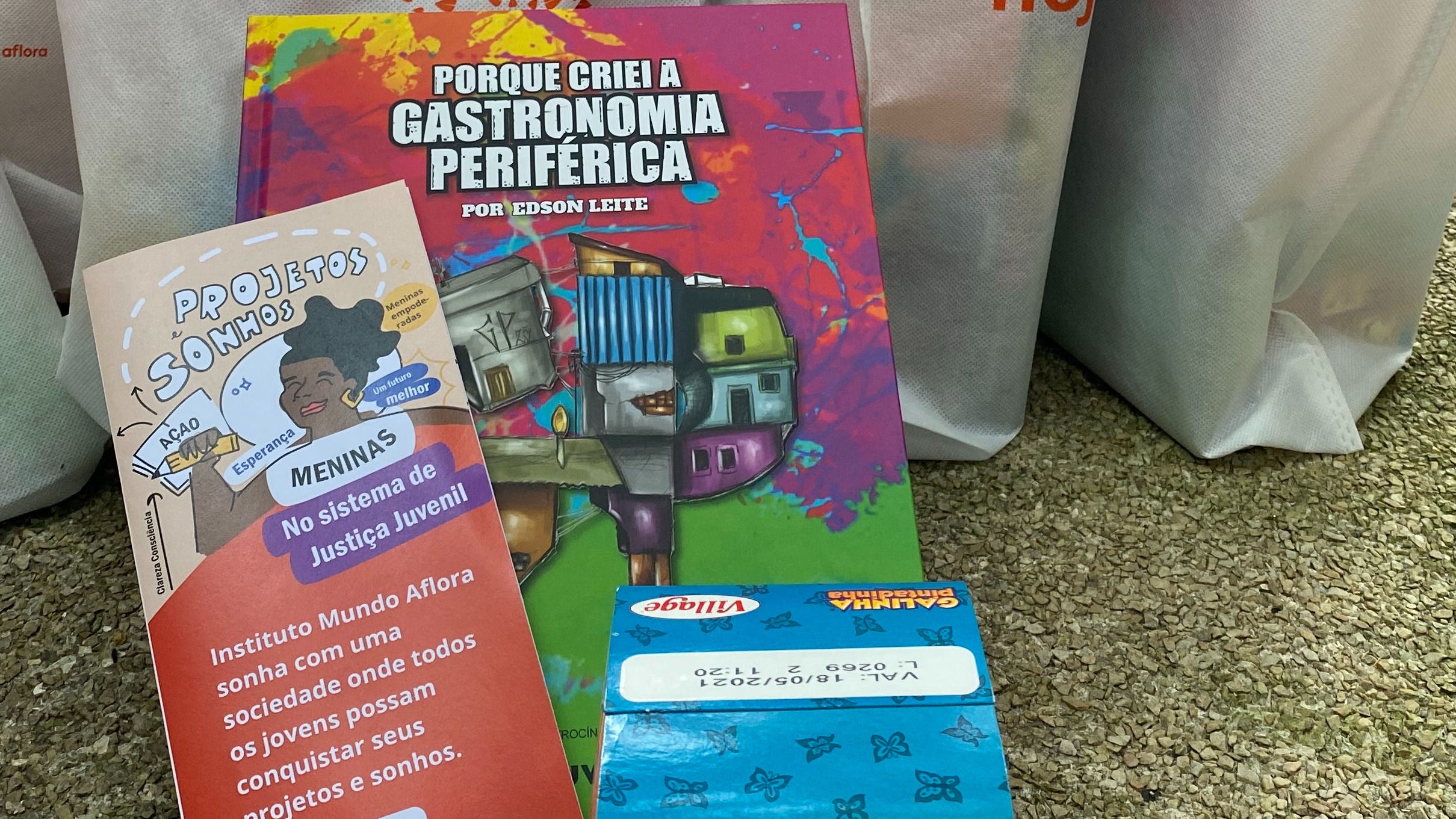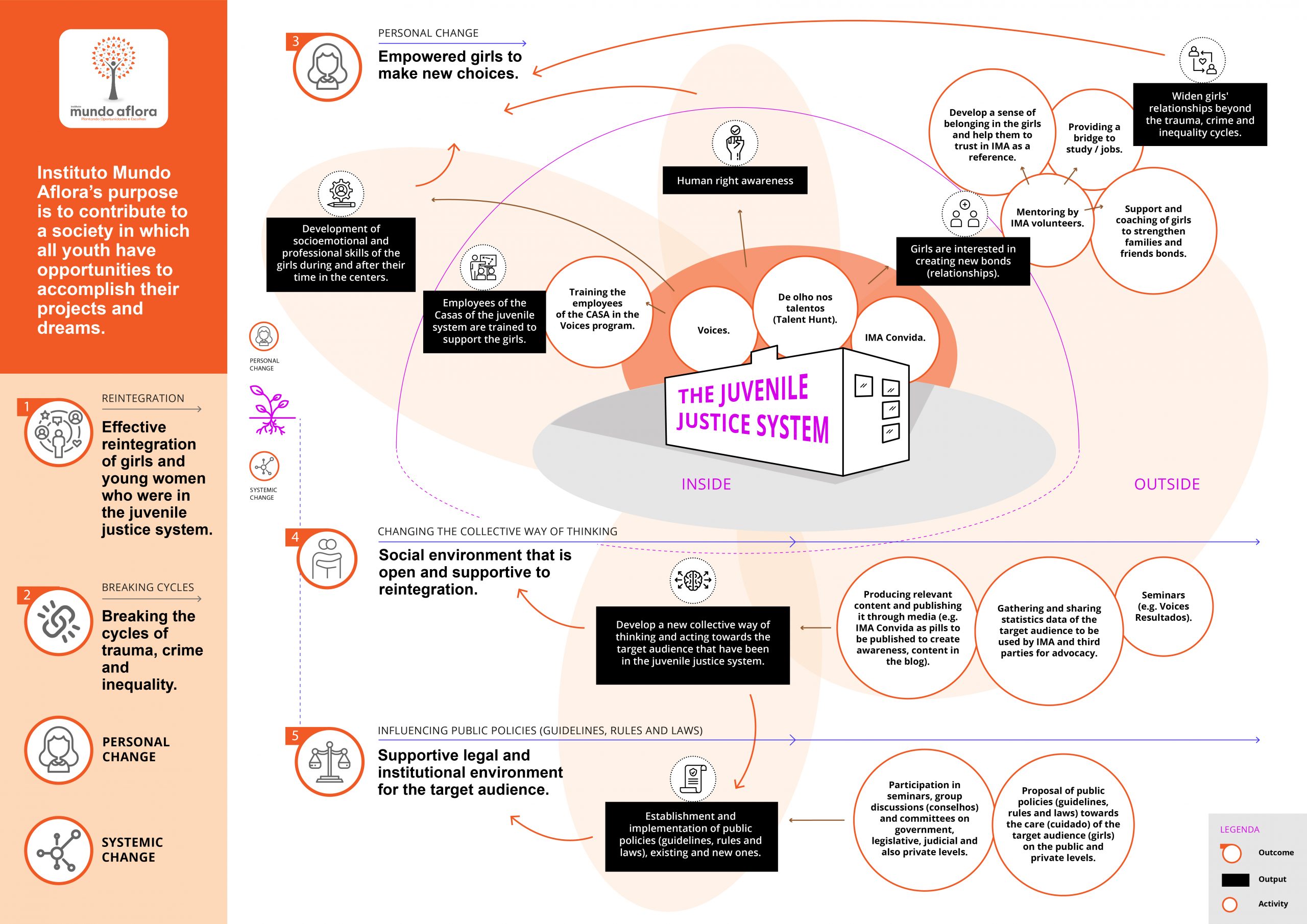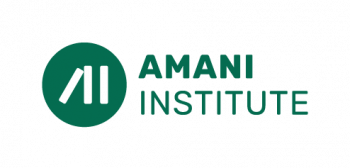“Talk does not cook rice” – Japanese Saying
In nearly every culture across the world, there is some sort of variation on the above saying, emphasizing the importance of actions rather than words. At Amani Institute, we also believe that in order to be effective agents of change, knowledge will only have value when it is applied. Last year, we launched the first ever fully digital edition of the Social Innovation Management (SIM)program with one of the key deliverables being an apprenticeship project. This gives Fellows a chance to apply classroom learnings to a real world context via a deliverable in an organization that they are attached to.
Two Fellows, Wanjiru Olunga (Kenya) and Piera Mattioli (Italy), did their virtual apprenticeship at Instituto Mundo Aflora(IMA), a brazilian organization dedicated to the effective reintegration of young girls in the juvenile detention system who have already been or are deprived of liberty, leading them to opportunities inside and outside the detention centers to make new choices, by helping them develop social, emotional and professional abilities to reach their goals and dreams. IMA is currently in the process of restructuring the organization to enhance its impact and as part of this process, Wanjiru and Piera took on the task of developing a new Theory of Change(ToC) for the organization.

The ToC developed by Wanjiru and Piera for IMA.
Here are some of the sentiments from Fellows as well as from the host apprenticeship organization.
Wanjiru Olunga, Amani Fellow (Kenya)
“I found the entire process of creating the Theory of Change for IMA to be challenging yet exciting as I had never created one before. The IMA team was always very supportive and willing to answer questions and clarify organizational context to make sure the final ToC was effective. Despite the huge time zone difference, we always found a way to collaborate effectively. It was also refreshing to collaborate directly with Renata(IMA Founder), and get her perspectives in an honest and free manner. It was impressive to learn how IMA as a private social enterprise is able to collaborate with the Sao Paulo State Government to shape policy on Juvenile female prisoners and become a key stakeholder in their welfare. There is a lot that social enterprises the world over can learn from this cross-sectoral collaboration for impact.
Hopefully the Theory of Change we created is implemented and helps IMA to transform the lives of as many young girls as possible in Sao Paulo. The process of creating the ToC also ignited a curiosity about Monitoring and Evaluation and I am now strongly considering that as a new career path.”
Piera Mattioli, Amani Fellow (Italy)
“I really valued the apprenticeship project with IMA because it helped me apply the content that we were taught in the Measuring Social Impact class in a real world setting. I certainly enjoyed the collaboration on the ToC with Wanjiru and also the feedback and input from Renata as well as their openness to visualize processes and results visually via platforms like Miro.
As someone with experience in the private sector, it was also interesting to see how some social impact enterprises put humanity at the core of what they do. Every meeting with the IMA team started with a check-in to see how we all are doing and if there is anything needed to help each other; something that is very rare in the private sector.
Through the apprenticeship, I learnt that I love facilitating conversations and analyzing and then mapping how each activity contributes to the desired final change. I want to do this even after the SIM Program is over and challenge for-profit entities to reflect and design strategies with a social impact angle.”
Renata Mendes, Co-Founder – Instituto Mundo Aflora (Brazil)
“The material developed by the fellows is crucial to the growth of IMA. We are in a moment of structuring the organization, and reviewing the theory of change to amplify our impact. Furthermore, the narrative and visualization of the theory of change for our different audiences (volunteers, girls in the juvenile justice system and donors) will be important to achieve our goal of creating awareness for our cause to the world in a clear way. This will serve as a basis for strategic and operational planning.
It certainly was a pleasure working with Wanjiru and Piera despite the vast time differences and language barrier (most of the IMA content was in Portuguese). We certainly managed to align on tasks in a flexible and creative manner. Our past experiences of working with Amani Fellows also helped. All the Fellows who have previously apprenticed at IMA were extremely vital in making IMA what it is today. They have taken us to a place that I dreamed of but didn’t know how to do it myself.”
If you are also interested in becoming an Amani Fellow and joining a global community of impact, intake for the next online cohort is open until the 15th February 2021. Apply here to join this transformative experience.






